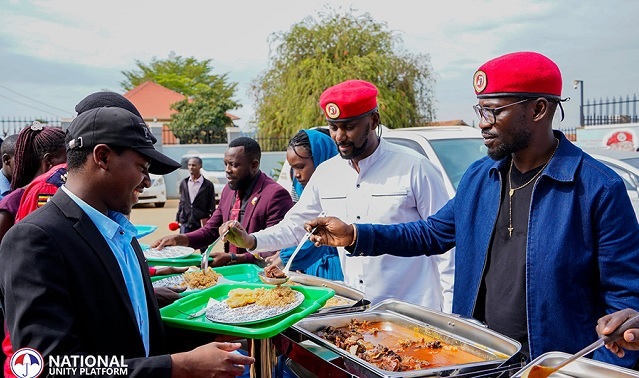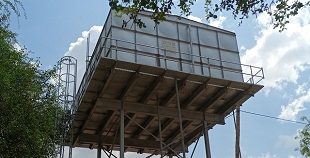
Kampala, Uganda | THE INDEPENDENT | Erios Thembo was among the students admitted to Makerere University in August 2024 through the government sponsorship scheme. Hailing from Kasese, Thembo was given a Bachelors in Mechanical Engineering after emerging as one of the top students from his home district, which secured him the sponsorship via the district quota window.
Like most students, Thembo entered Makerere University with high hopes of an enriching university experience. He hoped to secure a spot in one of the “prestigious” halls of residence and enjoy a comfortable life as he pursued his studies.
However, upon enrollment, Thembo faced immediate challenges. He sought a place in one of the university’s halls of residence but encountered delays when the university delayed to release his admission letter. This letter was necessary for him to secure a room at Nkrumah Hall, the hall to which he had been assigned.
With no immediate solution in sight, Thembo had no choice but to find accommodation off-campus. “I went to Makerere Kikoni and found a room that I could afford for two months, costing 120,000 shillings,” he explained.
A month later, when he finally received his admission letter, Thembo returned to Nkrumah Hall only to be told that all available spaces had been filled. He was advised to wait until the next year for a possible placement.
This marked the beginning of Thembo’s struggle. The only money he had left was the 240,000 shillings he had paid for rent. Once the two months were up, the landlord pressured him to pay, forcing him to flee and leave his belongings behind, and sought refuge with a friend in a distant area.
It wasn’t until his fellow students rallied together to raise funds for him that he was able to pay the landlord and reclaim his belongings.
Beyond the housing woes, Thembo, who says that he comes from a humble family back in Kasese, also struggled to afford meals. He often depended on friends from campus to help him with food, highlighting the immense challenges faced by many government-sponsored students.
Like Thembo, many other students who are sponsored by the government find themselves making difficult decisions due to a lack of resources, and these challenges often negatively impact both their academic performance and mental health.
Robert Mugabe, another student, shared a similar story. He was evicted from a room he had rented in Kikoni after failing to pay rent for three months. He now relies on the generosity of his colleagues for accommodation.
Lillian Akello, the President of the Makerere University Government Students Association, told this publication that she receives daily calls from her constituents who are either stuck in their hostel rooms, halls of residence, or off-campus rentals. Many of them face issues such as illness, lack of medication, hunger, or the threat of eviction.
However, Akello says that these cases are relatively few compared to the larger number of students who choose not to speak out. Many fear being stigmatized, while others doubt whether she can provide any help since she is just a fellow student with limited influence.
Who Are Government-Sponsored Students?
The government undergraduate sponsorship program was introduced to education to finance students who excelled in the Uganda Advanced Certificate of Education (UACE).
Through this initiative, the government covers the cost of tuition and functional fees for these students. Additionally, they receive meal and accommodation allowances, to those who do not secure placements in the university’s halls of residence.
Each year, the government sponsors 4,000 students across Uganda’s public universities, with Makerere University admitting the highest number of students through this program.
The sponsorship is divided into four categories. The first is the direct admissions scheme, also known as the national merit scheme, which admits about 3,000 top-performing students from across the country.
The second is the district quota scheme, which admits around 800 students from all districts based on performance. The third category supports 200 outstanding students in sports and those with special needs.
In 2024, Makerere admitted at least 1,000 students under the government sponsorship program, with Makerere University Business School admitting an additional 450 students, according to Professor Mukadasi Buyinza, the university’s academic registrar.
What Are Their Privileges?
Government-sponsored students at Makerere University who are housed in the university’s halls of residence are provided with a food allowance of 530,000 shillings per semester, and their accommodation is fully covered by the government.
Students who live off-campus receive a living-out allowance of 760,000 shillings per semester to cover both meals and accommodation.
The government assumes that students residing off-campus will use 530,000 shillings for food and the remaining 230,000 for rent over the course of a semester. However, for many students, these allowances fall short in light of the rising costs of living, especially for those unable to secure space in university halls.
Making sense of the Figures
A typical semester lasts about four months, or approximately 120 days. Given the allowances, a student is expected to spend 530,000 shillings on food and 230,000 shillings on rent over that period.
This means a student is allocated roughly 4,417 shillings per day for food, and 57,500 shillings per month for rent, particularly for those who live off-campus.
In 2022, URN reported that hostels in the areas surrounding Makerere University such as Kikoni, Kikumi Kikumi, Kavule, Bwaise, and Wandegeya, charge between 500,000 and 2 million shillings per semester. For rentals, monthly rents range from 150,000 to 500,000 shillings or more.
In addition, the cheapest meal at eateries near the campus costs at least 3,000 shillings, and students typically need two meals a day. This means that for a student to sustain themselves with two affordable meals daily over a semester, they would need at least 720,000 shillings.
For rent, the minimum a student can expect to pay for accommodation is 150,000 shillings per month, meaning a student would need at least 600,000 shillings for rent over the four months, which far exceeds the 230,000 shillings allocated.
Some students told URN that they have resorted to sharing accommodations with roommates to reduce costs. Each student typically contributes at least 300,000 shillings per semester.
In 2022, Makerere University Vice Chancellor, Professor Barnabas Nawangwe, appealed to Parliament to consider raising food and living allowances, as the current rates, which were established two decades earlier, no longer align with the country’s current cost of living.
Lillian Akello, the President of the Government-Sponsored Students Association, says her primary request is for the government to either increase these allowances or ensure they are delivered on time so students can properly plan their finances.
The Case of District Quota Window
The 1,000 such students admitted to Makerere University, they are divided into three categories: National Merit, District Quota, outstanding sportsmen and women, and persons with disabilities. The majority of the students, however, are admitted through the National Merit category.
Prosper Ategyeka, a government-sponsored Law student, told URN that because National Merit admissions take the largest share, the struggles faced by many students admitted through the District Quota and other windows often go unnoticed.
Ategyeka explained that many students in the District Quota come from remote, impoverished districts and depend heavily on the allowances for food and accommodation. This situation, he believes, differs significantly from the experience of National Merit students, who are often in the majority.
He elaborated that the National Merit students are, in many cases, somewhat privileged, as many come from well-off families who can afford quality education, leading them to score well in exams and gain admission through the National Merit window. As a result, some of these students are less affected by the financial challenges faced by their peers.
Ategyeka further argued that for the majority of students from the District Quota, the perception among their guardians is that the government’s provision of tuition and allowances means all their needs are met.
In fact, he alleges that most students who normally demonstrate when there is a delay in the release of these allowances exhibit a pattern in their backgrounds.
But, to make sense of Ategyeka’s argument, earlier in 2022, Deputy Speaker of Parliament Thomas Tayebwa suggested that the government should revise the process of awarding government sponsorships to the exclusion of those who sit their exams in high-performing schools.
His argument is that some of the beneficiaries of government sponsorships are students from well-to-do families who should not gain from government sponsorship since their families can ordinarily afford tuition and other campus expenses.
Why the current situation has escalated?
Since October 2024, students at Makerere have been gearing the harsh conditions, and some have even appealed to well-wishers for food donations to support the most vulnerable, especially female students who are reportedly struggling with hunger.
Although this is not so different from the previous years where Makerere University management has struggled with cases of students demonstrating whenever their allowances are delayed, students say that this time around, it is too much.
URN understands that by October 2024, three months into the semester, continuing non-resident students had only received 446,000 Shillings, while first-year students had received just 300,000 Shillings, amounts deemed insufficient. Students living in the halls had received only 93,000 Shillings for food, a sum deemed inadequate for survival.
Among many of the grievances they have raised is the university’s decision to prohibit cooking in the halls of residence, which they claim had made life less manageable, and the banning of low-cost food vendors from campus.
Simon Wandukwa, a student doing Law who has been at the forefront of fighting for the rights of government students says that one of the major issues that has risen around is the decision by the University to stop students from cooking inside halls of residence.
He says that many students relied on cooking for themselves, as it was more affordable than purchasing prepared meals. However, the university’s ban on cooking has left them with even fewer options.
But responding to this, Wilfred Kabumbuli, the dean of students at Makerere said that of this was done for the safety of students. “For the safety of all students, their property, and university property, students are not allowed to cook in Halls of Residence,” she said in a statement she released last month.
What student leaders are saying
Speaking on the current saga, Guild President Vicent Lubega Nsamba said that he had accessed a report from the Finance, Planning, and Administration Committee of the university’s Council, which outlined the budget agenda for the 2024/2025 financial year.
The report indicated that the university’s overall budget had been reduced by 25%. As a result, the committee decided to cut government-sponsored students’ allowances from the list of priorities.
Upon understanding the implications of this, Nsamba explained that he wrote to the university management, urging them to reconsider their decision and prioritize the allowances for government-sponsored students.
A source who preferred anonymity to speak candidly on the matter told URN that although the University Council and Management could resonate with Nsamba’s argument, they could do little to accommodate the allowances due the limited budget.
Makerere University Secretary, Yusuf Kiranda confirmed that the University’s budget suffered cuts of about 25 billion shillings, which has not only affected allowances for the students but also hampered essential areas like teaching, research and development.
He said the money received for students’ allowances isn’t sufficient to pay the full amount, but to cater for accommodation expenses for some students.
Kiranda further said that the University has since appealed to the government and submitted a supplementary budget to solve the problem.
“Council and management are in touch with the government, especially the Ministry of Finance Planning and Economic Development and we have submitted an application for supplementary funding to address the funding gap of student allowances,” he said.
National Unity Platform (NUP) Comes In At the beginning of November, the Opposition Political party, the National Unity Platform led by its Leader, Robert Kyagulanyi Ssentamu alias Bobi Wine, gathered several Government sponsored students to give them relief as after spending at least more than one week trying to push the University management to release their delayed allowances.
NUP Secretary General, David Lewis Rubongoya, later confirmed that the party had distributed relief food, including maize flour, beans, and rice, to at least 300 students.
“Instead of students dying of hunger when we are here, it does not make any sense, we are responsible to extending support in any way we can. We have so supported more than 300 students,” Rubongoya said.
But responding to NUP action, Makerere University Vice-Chancellor Professor Barnabas Nawangwe said that those who stormed NUP Head Quarters in Makerere Kavule were not coming from Makerere University.
Instead, Nawangwe alleged that those might be street children who were recruited from Kampala’s streets and posed to be students at Makerere University.
*****
URN
 The Independent Uganda: You get the Truth we Pay the Price
The Independent Uganda: You get the Truth we Pay the Price



